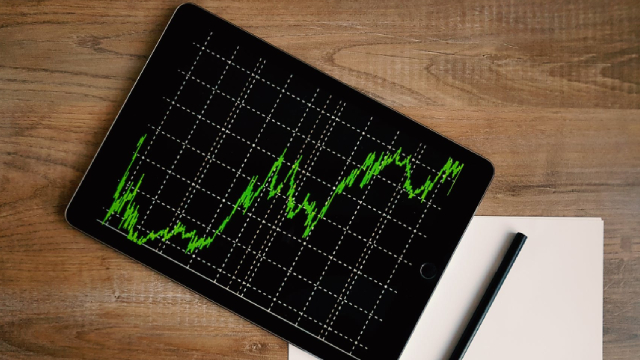The Nasdaq Composite Rebounds: Finding Value in ETFs
After a turbulent few months, the Nasdaq Composite index has managed to rebound slightly, moving out of correction territory as of now. The index, which is heavily weighted towards technology stocks, had seen a decline of over 10% from its recent highs. Although the rebound is a welcome sign for investors, it’s essential to remember that market volatility is a normal part of investing. In this blog post, we’ll explore some excellent ETFs that are currently offering bargains for long-term investors.
What Are ETFs, and Why Are They a Good Option for Long-Term Investors?
Exchange-traded funds (ETFs) are investment funds that hold multiple stocks, bonds, or other assets. They trade on an exchange, making them more flexible than traditional mutual funds, which can only be bought or sold at the end of the trading day. ETFs offer several benefits for long-term investors:
- Diversification: ETFs allow investors to gain exposure to a broad range of assets, reducing the risk associated with investing in a single stock or sector.
- Lower Costs: ETFs generally have lower expense ratios than actively managed mutual funds, making them a more cost-effective option for long-term investors.
- Liquidity: ETFs can be bought and sold throughout the trading day, providing investors with more flexibility to manage their portfolios.
Top ETFs for Long-Term Investors Amid Market Volatility
Despite the recent rebound in the Nasdaq Composite, there are still some excellent ETFs that offer value for long-term investors. Here are a few to consider:
Vanguard Total Stock Market ETF (VTI)
The Vanguard Total Stock Market ETF tracks the performance of the CRSP US Total Market Index, providing investors with exposure to over 3,000 US stocks. With a low expense ratio of 0.03%, this ETF is an excellent option for long-term investors looking to diversify their portfolio.
SPDR S&P 500 ETF Trust (SPY)
The SPDR S&P 500 ETF Trust tracks the S&P 500 index, which is made up of 500 large companies listed on the NYSE or NASDAQ. With a low expense ratio of 0.09%, this ETF is an excellent choice for investors looking to gain exposure to the US stock market while keeping costs low.
iShares Core MSCI Total International Stock ETF (IXUS)
The iShares Core MSCI Total International Stock ETF tracks the performance of the MSCI ACWI ex USA Index, providing investors with exposure to over 2,500 international stocks. With a low expense ratio of 0.13%, this ETF is an excellent option for long-term investors looking to diversify their portfolio beyond the US market.
The Impact of Market Volatility on Individual Investors
Market volatility can be a source of anxiety for individual investors, especially those who are new to investing. However, it’s essential to remember that market volatility is a normal part of investing, and it’s essential to stay focused on your long-term investment goals. Here are some tips for managing market volatility:
- Diversify Your Portfolio: Diversification is key to managing risk. Make sure you have a well-diversified portfolio that includes stocks, bonds, and other assets.
- Maintain a Long-Term Perspective: Market volatility is temporary. Focus on your long-term investment goals and avoid making impulsive decisions based on short-term market movements.
- Rebalance Your Portfolio: Regularly rebalancing your portfolio can help ensure that you maintain the right asset allocation for your risk tolerance and investment goals.
The Impact of Market Volatility on the World
Market volatility can have far-reaching impacts on the global economy. Here are some potential consequences of market volatility:
- Reduced Consumer Confidence: Market volatility can lead to reduced consumer confidence, which can in turn lead to decreased spending and a slowdown in economic growth.
- Increased Uncertainty: Market volatility can create uncertainty, which can lead to decreased business investment and slower economic growth.
- Increased Market Volatility: Market volatility can lead to increased market volatility, as investors react to news and events.
Conclusion
While the Nasdaq Composite has rebounded slightly from its recent correction, there are still excellent opportunities for long-term investors to find value in ETFs. By diversifying your portfolio and maintaining a long-term perspective, you can manage market volatility and achieve your investment goals. Remember, market volatility is a normal part of investing, and it’s essential to stay focused on your long-term investment strategy.
As an assistant, I don’t have the ability to feel emotions or be directly affected by market volatility. However, I can provide you with accurate and up-to-date information to help you make informed investment decisions. If you have any questions or need further assistance, please don’t hesitate to ask.





